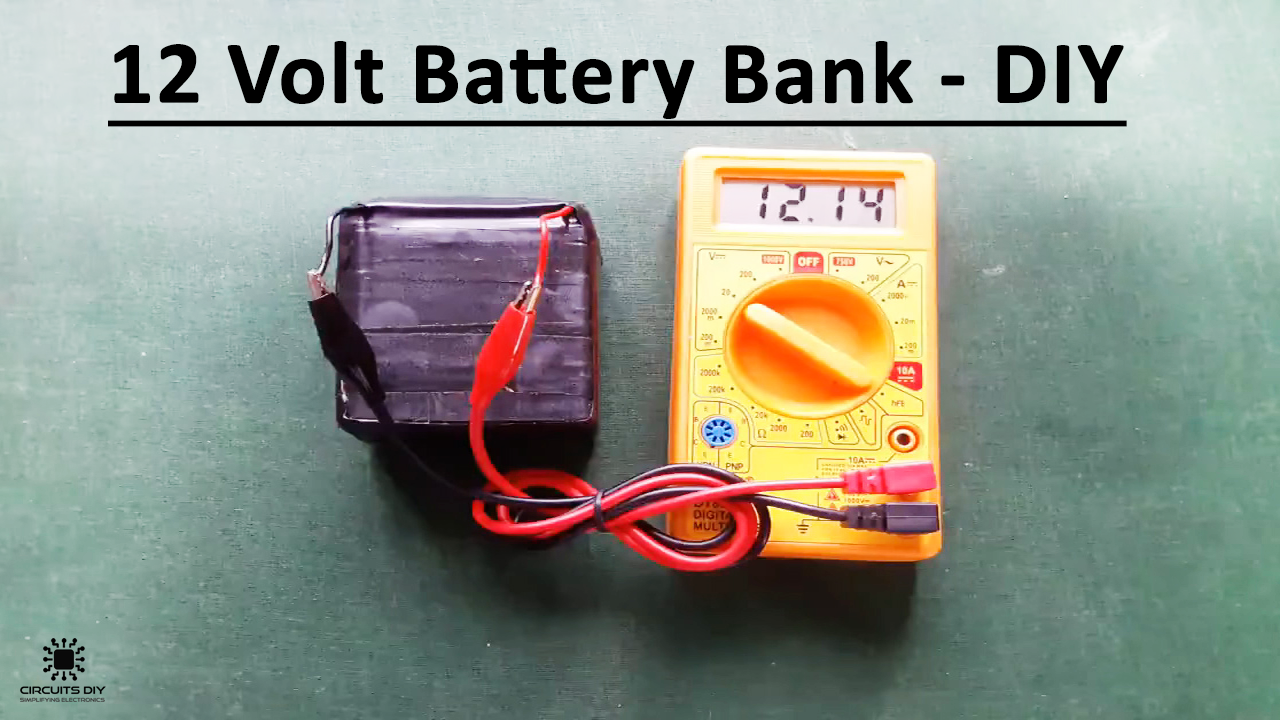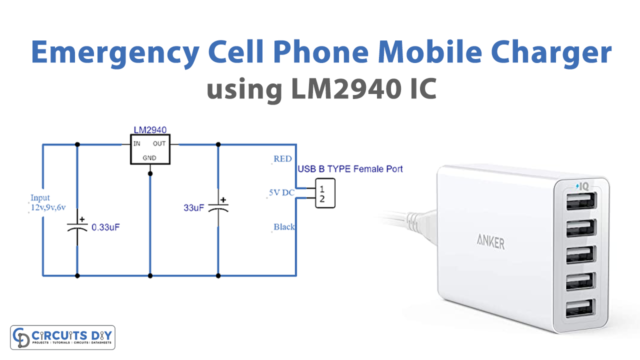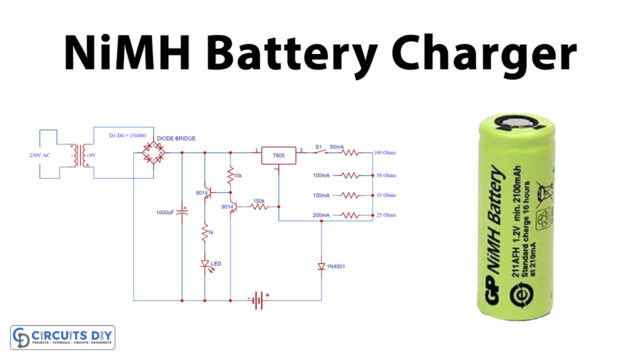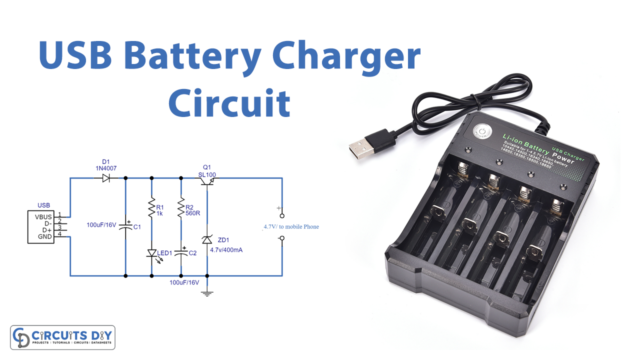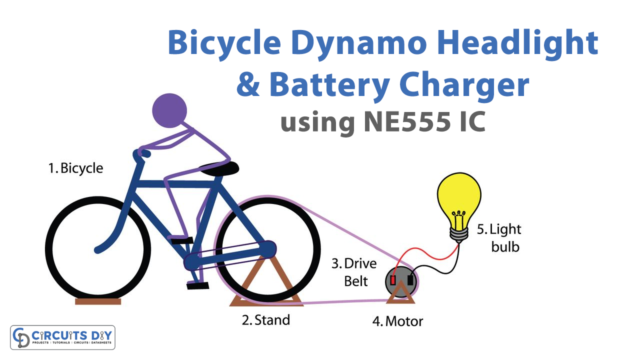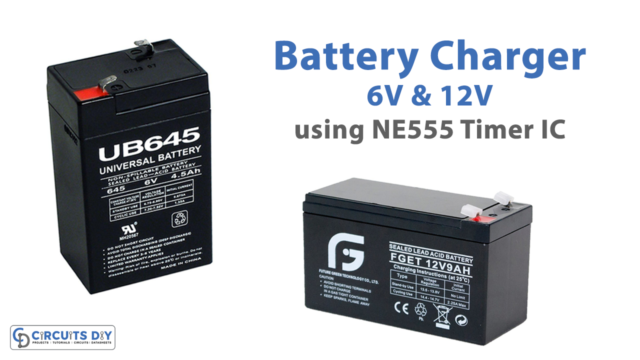What is a Battery Bank?
In layman’s terms, A battery bank is a group of batteries that are connected together in such a configuration that either allows you to boost output voltage or increase storage capacity, or both. Battery banks are a common application in both the electrical & electronic industries, with their uses in many different places. They are safe & relatively cheap to make at home. So, in this article, we are going to build a 12V Battery bank using three 4V Lead Acid Batteries.
In order to Make a 12V Battery using solely 4V Batteries, we have to arrange them in a series configuration. Connecting batteries in series adds the voltage of the two batteries, but it keeps the same amperage rating (also known as Amp Hours).
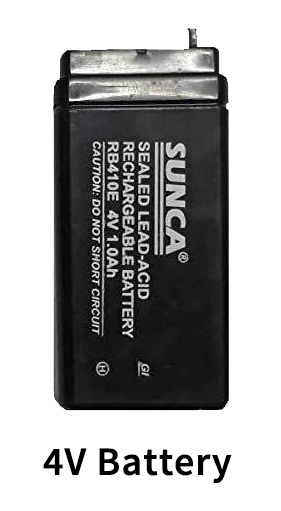
Hardware Components
The following components are required to make a 12V Battery Bank Circuit
| S.no | Component | Value | Qty |
|---|---|---|---|
| 1. | Lead Acid Batteries | 4V/1A | 3 |
| 2. | Soldering Iron | 45W – 60W | 1 |
| 3. | Soldering Wire with Flux | – | 1 |
| 4. | AVO Meter w/ probes | – | 1 |
| 5. | Alligator Clips | – | 2 |
| 6. | Electrical Tape | – | 1 |
| 7. | Jumper Wires | – | As per need |
Useful Steps
Following are the step-by-step instructions on ‘How to make a 12V Battery Bank’.
1) Stack the 3 Lead Acid Batteries together & cover them with electrical insulating tape.

2) Solder each -ve terminal of each battery in the stack with the +ve terminal of the other battery, leaving the first +ve & the last -ve terminal disconnected.

3) Insulate the exposed terminals using electrical tape.

4) Test the Battery bank using an AVO Meter

Working Explanation
The Working of this battery bank circuit is pretty simple. A jumper wire is used to connect the negative terminal of the first battery to the positive terminal of the second battery while another set of wires is used to connect the open positive and negative terminals to any external DC device.
When connecting batteries never cross the remaining open positive and open negative terminals with each other, as this will short circuit the batteries & can be dangerous to both the battery and the user.
Applications
- It is used in applications such as emergency lights, bikes & cars, etc.


